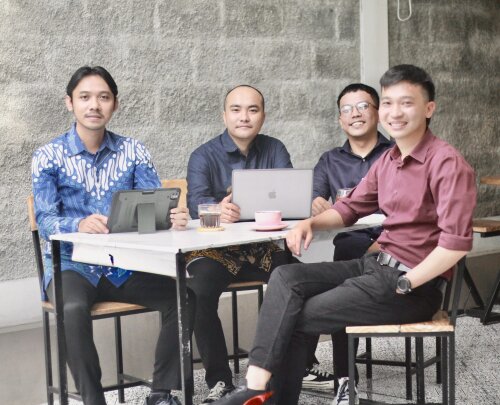Best Pension Lawyers in Indonesia
Share your needs with us, get contacted by law firms.
Free. Takes 2 min.
Or refine your search by selecting a city:
List of the best lawyers in Indonesia
About Pension Law in Indonesia
Pension systems in Indonesia are designed to provide retirement benefits to individuals who have made contributions during their working life. The framework primarily consists of the state-run pension program and private pension schemes offered by employers. The state-run program includes the Social Security Administration Agency (BPJS Ketenagakerjaan), which covers old-age benefits, retirement savings, and pensions. In recent years, there have been legislative efforts to expand and improve retirement benefits, aiming to provide better financial security for retirees.
Why You May Need a Lawyer
Legal advice may be necessary for several reasons when dealing with pensions in Indonesia. Common situations include disputes over pension entitlements, mismanagement or miscalculation of pension benefits, issues related to employer-provided pension plans, and understanding the complex legal requirements governing pension schemes. Additionally, legal counsel can assist expatriates or foreign residents in navigating the Indonesian pension system, ensuring compliance with local regulations and optimizing their retirement benefits.
Local Laws Overview
The Indonesian pension system is governed by several key laws and regulations. The primary legislation includes the Manpower Act, which mandates certain employee benefits and the administration of pension funds. Additionally, the Financial Services Authority (OJK) oversees the operation of pension funds, ensuring transparency and accountability. The BPJS Ketenagakerjaan regulates mandatory contributions for old-age savings and pension benefits. Understanding these laws is crucial for both employers and employees to ensure proper compliance and benefit distribution.
Frequently Asked Questions
What is BPJS Ketenagakerjaan?
BPJS Ketenagakerjaan is the Social Security Administration Agency responsible for administering old-age savings, pensions, and other employment-related social security programs in Indonesia.
Who is eligible for participating in the pension program?
Both Indonesian nationals and expatriates working in Indonesia are generally eligible to participate in pension programs, provided they meet specific criteria outlined by their employer or the BPJS Ketenagakerjaan.
What are the primary benefits of the pension system in Indonesia?
The primary benefits include a retirement pension, old-age savings, and severance pay, aimed at securing financial stability post-retirement.
Can private companies offer separate pension plans?
Yes, many private companies offer additional pension schemes as part of their employee benefits package, which often supplements the mandatory BPJS contributions.
What happens if an employer fails to contribute to the pension fund?
If an employer fails to make necessary contributions, they may face legal penalties imposed by the Financial Services Authority (OJK), and employees may seek legal recourse for any losses incurred.
How are pension benefits calculated?
Pension benefits are calculated based on the individual's contributions, salary history, retirement age, and specific terms outlined by the BPJS Ketenagakerjaan and any additional private schemes.
Are there any tax implications for pension benefits?
Yes, tax implications can arise depending on the source and amount of pension benefits. It is advisable to consult a tax professional or legal advisor to understand these implications.
Can expatriates receive pension benefits when leaving Indonesia?
Expatriates are typically allowed to receive pension benefits upon returning to their home country, although processing and calculations may vary.
Is it possible to withdraw pension savings before retirement?
In certain cases, early withdrawal may be possible under specific conditions like severe illness or unemployment, but this should be carefully verified with legal support to avoid penalties.
How can disputes regarding pension benefits be resolved?
Disputes can be resolved through negotiation, mediation, or court proceedings, where legal assistance ensures proper representation and fair outcomes.
Additional Resources
Several resources can assist those seeking legal advice on pensions in Indonesia. Key resources include the Financial Services Authority (OJK), BPJS Ketenagakerjaan, and the Indonesian Ministry of Manpower. Professional organizations such as the Indonesian Bar Association can also help connect individuals with experienced pension lawyers.
Next Steps
If you need legal assistance regarding pensions in Indonesia, consider consulting with a lawyer specializing in employment and pension law. You can start by contacting the Indonesian Bar Association for recommendations or seeking referrals from trusted professionals in the field. It is crucial to gather all relevant documentation and understand your specific needs before discussing your case with a lawyer, ensuring you receive tailored, effective legal support.
Lawzana helps you find the best lawyers and law firms in Indonesia through a curated and pre-screened list of qualified legal professionals. Our platform offers rankings and detailed profiles of attorneys and law firms, allowing you to compare based on practice areas, including Pension, experience, and client feedback.
Each profile includes a description of the firm's areas of practice, client reviews, team members and partners, year of establishment, spoken languages, office locations, contact information, social media presence, and any published articles or resources. Most firms on our platform speak English and are experienced in both local and international legal matters.
Get a quote from top-rated law firms in Indonesia — quickly, securely, and without unnecessary hassle.
Disclaimer:
The information provided on this page is for general informational purposes only and does not constitute legal advice. While we strive to ensure the accuracy and relevance of the content, legal information may change over time, and interpretations of the law can vary. You should always consult with a qualified legal professional for advice specific to your situation.
We disclaim all liability for actions taken or not taken based on the content of this page. If you believe any information is incorrect or outdated, please contact us, and we will review and update it where appropriate.
Browse pension law firms by city in Indonesia
Refine your search by selecting a city.















